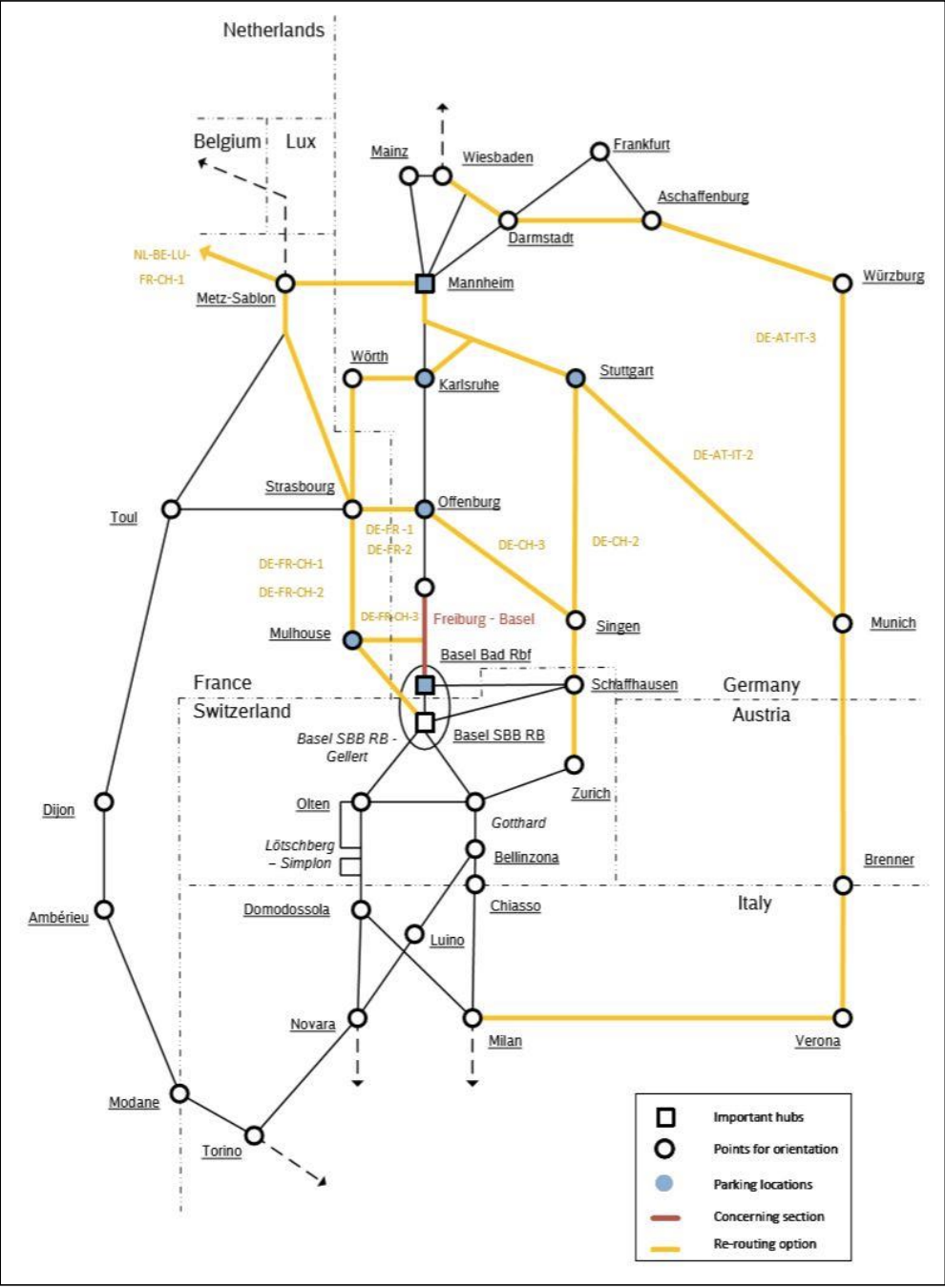These are the alternative routes for Freiburg-Basel traffic

A map with possible alternative routes is available for traffic impacted by the accident on the Rhine Valley railway in Germany. A bridge near Augen collapsed, and a freight train collided with the concrete structure on Thursday evening. The railway line between Freiburg in Germany and Basel in Switzerland is affected by this accident.
The route between Freiburg and Basel will probably remain closed until Monday morning, said German railway company Deutsche Bahn last night. According the the Rhine-Alpine Corridor management, the tracks and catenary are seriously damaged.

As the map shows, there are several alternative routes available (in yellow) to reach destinations in the Netherlands, Belgium, Germany, Austria, Switzerland and Italy. The re-routing from Milan seems to be the longest; traffic from the North-Italian hub must travel via Verona and Munich to get to the other side of the Alps.
Off the shelf
The re-routing map is a permanent document that has been developed in response to the Rastatt incident, which took place in August 2017. “Off the shelf” rerouting options and traffic management scenarios were prepared that should minimise disruptions in case of such incidents.
These scenarios also include information on technical parameters and other operational requirements. Moreover, one infrastructure manager should take the lead in coordinating the international cooperation and managing the available international re-routing capacity. In this case, that is DB Netze.
Relevant re- routings and mitigation decisions should be taken within the first 24 hours after the accident. Within 36 hours of an incident taking place, a rough indicative timetable should be provided.
Also read:
Fatal accident on Rhine Valley railway after bridge collapse






if freight charges rise as predicted, then by all acounts ,you will lose some of expected traffic increase, which in light of the world wide disease ‘coronavirus’ could easily force operators to rethink about converting traffic to rail